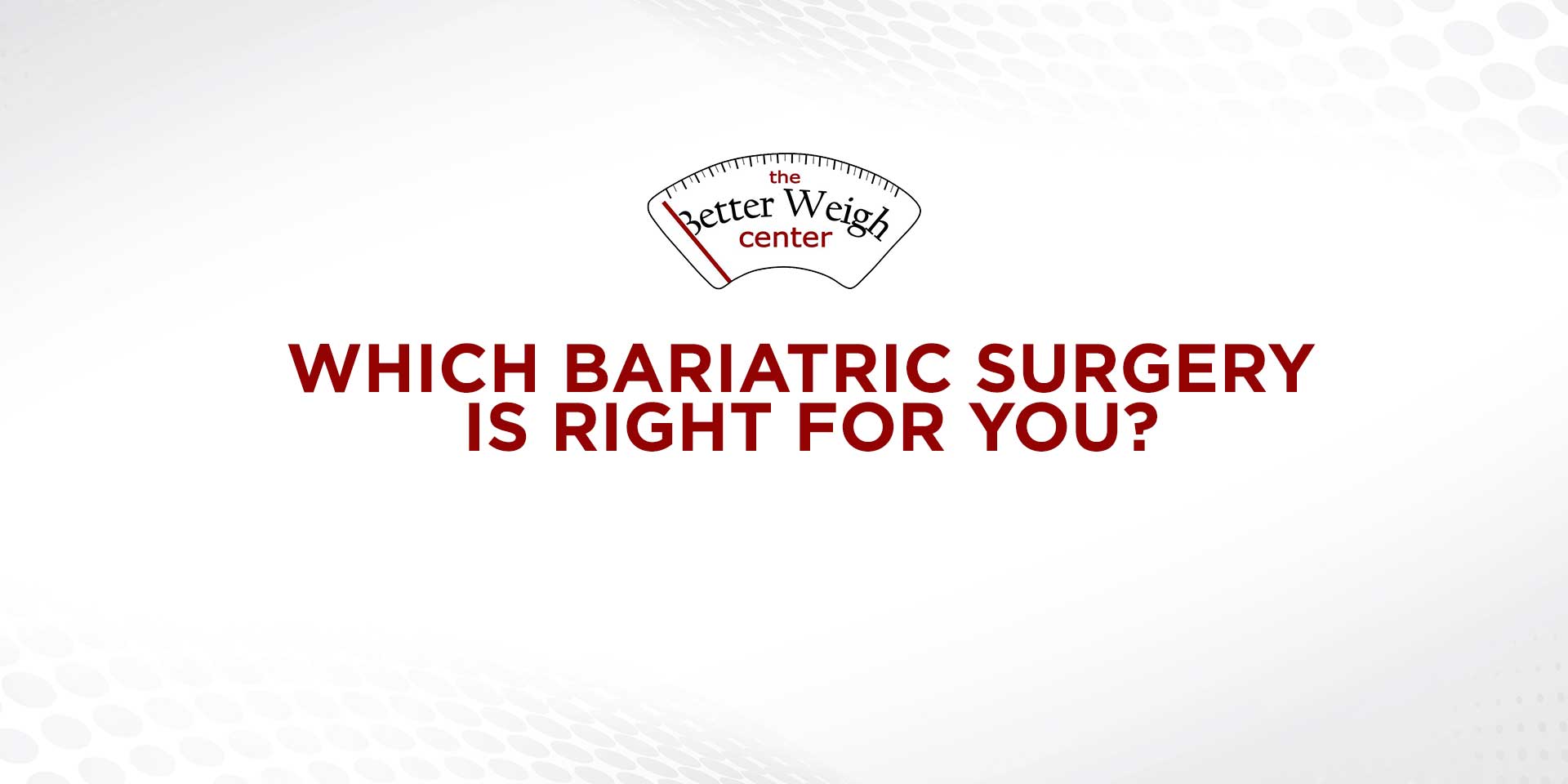Are you done with the routine of trying every diet and exercise plan imaginable with little to no results in return? Many have tried it all only to learn from a doctor that bariatric surgery may be the answer. The next step, then, is to determine what types of operations are available and the benefits provided by each. The two most common procedures are the Roux-en-Y Gastric Bypass and Sleeve Gastrectomy.
According to doctors, both surgeries are great options for the average patient with severe obesity. Still, some factors may tip the scales (pun intended) in favor of one over another.
This now begs the question; Which weight loss surgery is best for you? Fortunately for you, we’ve compiled a list of the bariatric surgery types and the benefits of each:
Bariatric surgery options
You are a candidate for Bariatric Surgery if:
- Your body mass index (BMI) is 40 or higher
- Your BMI is between 35 and 40, and you have diabetes, high blood pressure, high cholesterol, fatty liver disease, or sleep apnea.
Still, it’s best to consult with your bariatric surgeon to narrow down the best option. A few key factors will be considered, such as the patient’s history, present conditions, and expectations. Nowadays, doctors typically use minimally invasive techniques to perform almost all bariatric surgeries. That means smaller incisions (usually five or six in the abdomen) and faster recovery. Most patients go home the same day of surgery and recover within 2 to 3 weeks.
Sleeve Gastrectomy Surgery
Sleeve gastrectomy surgery (also known as gastric sleeve) involves operating only on the stomach. This process involves removing a portion of the stomach and reconnecting the remaining tissue leaving a smaller “sleeve.” The sleeve is safer than gastric bypass. Its rate of complications is 3% after operation vs. 5% with Roux-en-Y gastric bypass.
It is most suitable for:
- Patients who have had multiple abdominal surgeries. Rerouting the GI tract and operating on the small intestine is extremely difficult when there is severe scar tissue around it. In this process, the surgeon only operates on the upper part of the abdomen, usually less affected by the scar tissues.
- High-risk surgical patients. Sleeve gastrectomy is much safer than gastric bypass. The anesthetic time is shorter, and the recovery is faster. Some examples of high-risk patients are those with a history of heart disease, lung problems, and those who have donated organs or have been recipients of organ transplants.
- One whose weight exceeds 450 pounds. Excessive fat in your body can limit the amount of space inside the abdomen. When performing gastric bypass surgery, operators need enough room in the cavity to reroute the GI tract. When too much fat is present, gastric bypass becomes nearly impossible, but such is not the case for sleeve gastrectomy.
- Patients on medications for psychiatric illness. Procedures like gastric bypass can affect absorption and responses to medications. For patients with depression or anxiety who are stable on psych medication, doctors would not advise a procedure that may alter their medication’s absorption and effectiveness.
Gastric bypass surgery
Roux-en-Y gastric bypass is when a surgeon disconnects the stomach where it meets the esophagus to create a small pouch at the entry point. After which they bring a loop of small intestine up and connect it to that pouch, rerouting the GI (gastrointestinal) tract. When the patient eats food, it enters directly in the small intestine, thereby “bypassing” 90 to 95% of the stomach. Gastric bypass is more effective in weight loss than sleeve gastrectomy surgery. Patients lose upwards of 10 to 20 pounds more on average. Rerouting the GI tract leads to some hormonal changes. Because of this, the chances for diabetic symptoms improving are higher as well.
It is most suitable for:
- Patients suffering from Acid Reflux Disease. Acid reflux often improves after gastric bypass surgery.
- Patients with Diabetes. Whether undergoing a bypass or a sleeve procedure, patients with minor to severe diabetes cases can experience vast improvements. Both systems are similarly effective.
Duodenal switch
Think of Duodenal switch surgery as a hybrid between sleeve gastrectomy and gastric bypass. In this process, the surgeon removes part of your stomach to create the trademark sleeve. After this, the GI tract is rerouted similarly as with gastric bypass. As a result, a considerable amount of weight loss occurs with more significant metabolic effects. It is more effective then Roux-en-Y gastric bypass surgery. It can result in substantial improvement in diabetic symptoms as well.
It is most suitable for:
- Patients with severe obesity. This procedure will result in a substantial amount of weight loss at a rapid rate.
- Patients with metabolic diseases. Duodenal switch process impacts on your hormonal balance in the GI tract. This procedure is beneficial for improving your metabolic conditions such as diabetes and high BP.
- Patients disciplined at following doctor’s orders. Those who are strictly compliant with the vitamins, supplements, and post-op follow up instructions. This surgery is not safe for those who may not take the post-op recommendations seriously. Following the guidelines given by your doctor dramatically reduces the risk of malnutrition.
Also Read:Medical Weight Loss and It’s Benefits




